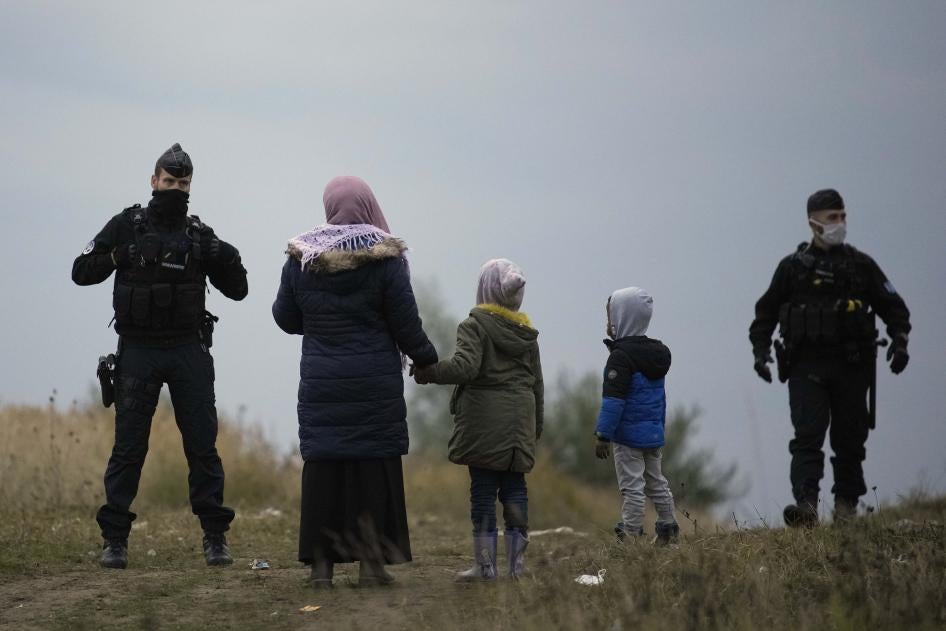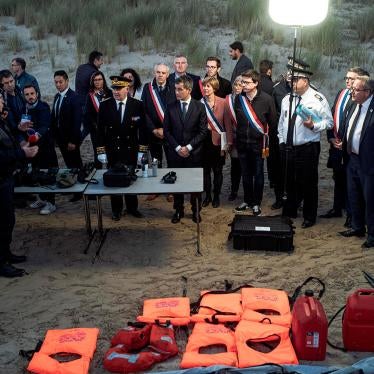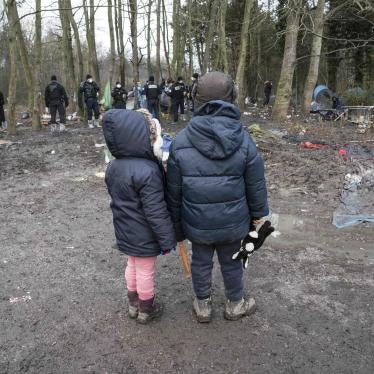Three weeks after French Interior Minister Gérald Darmanin dismissed a Human Rights Watch report on police abuse against migrants in northern France as “lies,” national officials are beginning to change their tone. Didier Leschi, head of the French immigration and integration office, acknowledged this week that authorities’ policy toward migrants has been “incoherent” and problematic.
As part of an ineffectual policy aimed at deterring long-term migrant encampments, authorities routinely subject migrant adults and children in Calais and nearby Grande-Synthe to degrading treatment, including evictions and near-daily police harassment, and restrict their access to food, water, and other essentials.
The accounts we heard from some 60 migrant children and adults are consistent with the findings of groups working in these encampments, including Human Rights Observers and Utopia 56. Two national human rights institutions, the French ombudsperson and the National Consultative Commission on Human Rights, have also condemned police practices and official policy toward migrants in the region.
Darmanin’s denial of our detailed findings last month lacked credibility from the start. An essay by 19 nongovernmental groups demolished his claim that no member of the police or the gendarmerie had ever been convicted of abuses against migrants in northern France. In reality, at least five officers have been convicted on such charges in the last six years, most recently in September. Many other complaints to internal police investigative bodies and the courts have not resulted in prosecution.
Darmanin’s dismissive response also contributed to a public relations nightmare for President Emmanuel Macron six months before France’s presidential election. A Catholic chaplain and two others began a hunger strike to protest migrants’ deplorable treatment. A public outcry followed, with rights and humanitarian groups, artists, and celebrities denouncing the “scandalous and truly unimaginable” living conditions migrants endure in northern France.
Enter Didier Leschi, Macron’s mediator. Ahead of his second visit to Calais this week, Leschi offered an anemic proposal: a 45-minute grace period before evictions to give people more time to gather their belongings, and an offer that everyone evicted receive alternative accommodation, though not in Calais, and likely for only a few nights. And on Wednesday he announced the opening of a short-term shelter in Calais.
That he’s engaging in dialogue instead of vituperation is some progress. But activists have rightly rejected the proposal as window dressing.
The government needs to drastically change its approach: put an end to the repeated evictions of migrant encampments and abusive policing, provide adequate accommodation providing sufficient stability and assistance to allow people to make informed choices, and offer meaningful options to seek regular status, in France, elsewhere in the European Union, and in Britain.











